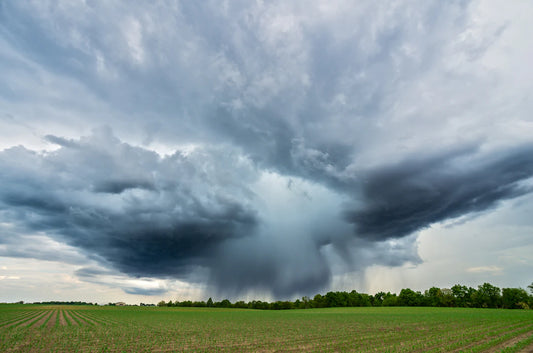Frequently Asked Questions
1. What is an eco-friendly baby registry?
2. How do I create an eco-friendly baby registry?
3. What items should I include in my eco-conscious baby registry?
4. How can I encourage family to give eco-friendly gifts?
5. What should I do with used baby items after my baby arrives?
Creating a baby registry is an exciting step for expecting parents. As conscientious consumers become more aware of their choices, eco-friendly baby registries are gaining popularity. If you are planning to bring a new life into this world and want your baby’s arrival to be as sustainable as possible, crafting an eco-friendly baby registry is a wonderful way to align your values with your parenting goals. In this guide, we will walk you through everything you need to know to create a thoughtful and eco-conscious baby registry that includes essentials, from organic clothing to a monthly nappy bundle.
Understanding Eco-Friendly Baby Products
Before diving into the specifics of creating your registry, it’s crucial to understand what makes baby products eco-friendly. An eco-friendly product typically meets one or more of the following criteria:
- Made from organic, sustainably sourced materials
- Free from harmful chemicals and toxins
- Biodegradable or recyclable
- Produced through ethical labor practices
- Supports a circular economy
By prioritizing these factors, not only are you making mindful purchases for your baby, but you're also contributing to a healthier planet and future for them.
Deciding on Your Registry Size
When creating your eco-friendly baby registry, it’s essential to consider the size of your registry. Unlike traditional registries which can sometimes encourage overconsumption, an eco-friendly registry should focus on quality over quantity. Consider these tips:
Be Selective
Choose only items that align with your values and that you genuinely need. For example, instead of registering for ten different onesies, pick a few high-quality organic cotton ones that will last.
Consider Longevity
Include items that will grow with your baby, such as adjustable cribs or multi-purpose baby carriers. This way, you’re reducing waste by avoiding single-use products.
Building Your Eco-Conscious Baby Registry
To create an eco-friendly baby registry, it’s important to think about all aspects of baby care. Here’s how to build a well-rounded and sustainable registry:
Clothing and Textiles
Opt for organic cotton or bamboo fabric baby clothes and blankets. These materials are not only better for the environment but also safe for your baby's sensitive skin. When selecting clothing, focus on:
- Comfort – Choose soft fabrics that won’t irritate the skin.
- Size – Register for various sizes to accommodate your baby’s growth.
- Timelessness – Think about classic styles that can be passed down.
Nappies and Accessories
One prominent feature of an eco-friendly baby registry is a monthly nappy bundle. Cloth nappies are gaining traction among eco-conscious parents for their ability to reduce waste significantly. They may have a higher upfront cost but pay off in the long run. Here are some points to consider when registering for nappies:
- Hybrid and Reusable Nappies – These combine the benefits of cloth and disposables.
- Biodegradable Options – If you do choose disposables, look for biodegradable brands.
- Accessories – Include items such as cloth wipes and a wet bag for easy cleanup.
Feeding Essentials
When it comes to feeding your baby, consider eco-friendly products that are safe and sustainable. From bottles to baby food options, here’s what to include:

- Bamboo utensils: Biodegradable and gentle for your baby.
- Glass or stainless steel bottles: Durable and safer than plastic alternatives.
- Organic baby food: If you’re not making your own, opt for brands that use organic produce.
Gear and Furniture
Purchasing baby gear often comes with a hefty carbon footprint. However, choosing eco-friendly gear can significantly minimize your impact. Here are ways to make wise choices:
- Repurposed or Recycled Materials – Look for cribs and strollers made from reclaimed wood or recycled materials.
- Sustainable Brands – Research companies that prioritize eco-friendly manufacturing practices.
- Second-Hand Items – Consider gently-used options from trusted sources to avoid new resource consumption.
How to Share Your Registry
Once you’ve established your eco-friendly baby registry, it’s time to share it with family and friends. Here are a few effective ways:
Create a Personalized Link
Use your Shopify store to create a personalized registry link, allowing friends and family to view and purchase items directly. This not only simplifies the gift-giving process but lets you inform loved ones about the eco-friendly focus of your choices.
Use Social Media to Spread the Word
Consider announcing your registry on platforms like Instagram or Facebook. This allows you to highlight your eco-friendly ethos and share why you’ve selected specific items, creating a connection with your audience.
Encouraging Eco-Friendly Gifts
Even with a well-crafted registry, guests may still bring traditional gifts that don't align with your values. You can gently encourage eco-conscious giving in several ways:
- Include a note on your registry explaining your eco-friendly goals.
- Suggest alternative gifts or ask for gift cards for sustainable brands.
- Promote experiences over material goods, such as a family outing or a day of help with childcare.
After Your Baby's Arrival
Once your bundle of joy arrives, your eco-friendly journey doesn’t stop at the baby registry. You’ll encounter many opportunities to make sustainable choices as your baby grows. Think about:
Waste Management
Ensure all used items, from clothing to diapers, are disposed of or recycled correctly. Cloth nappies can be washed and reused, while others may need specialized disposal options.
Environmental Education
Utilize this opportunity to educate your child about the importance of sustainability. As they grow, involve them in eco-friendly practices and consider sharing your experiences on a blog or social media, fostering a collective commitment to a greener future.
Create a Legacy of Sustainability
Your eco-friendly baby registry is just the beginning of a sustainable lifestyle for your family. By consciously choosing eco-friendly products and practices, you are setting a legacy of responsibility and care for your child and the planet. Your decisions today will shape the world they will inherit.
Whether it's selecting quality over quantity or keeping waste to a minimum, every small action contributes to a healthier environment for generations to come. Embrace this opportunity to make a lasting difference while preparing for your new little miracle!





